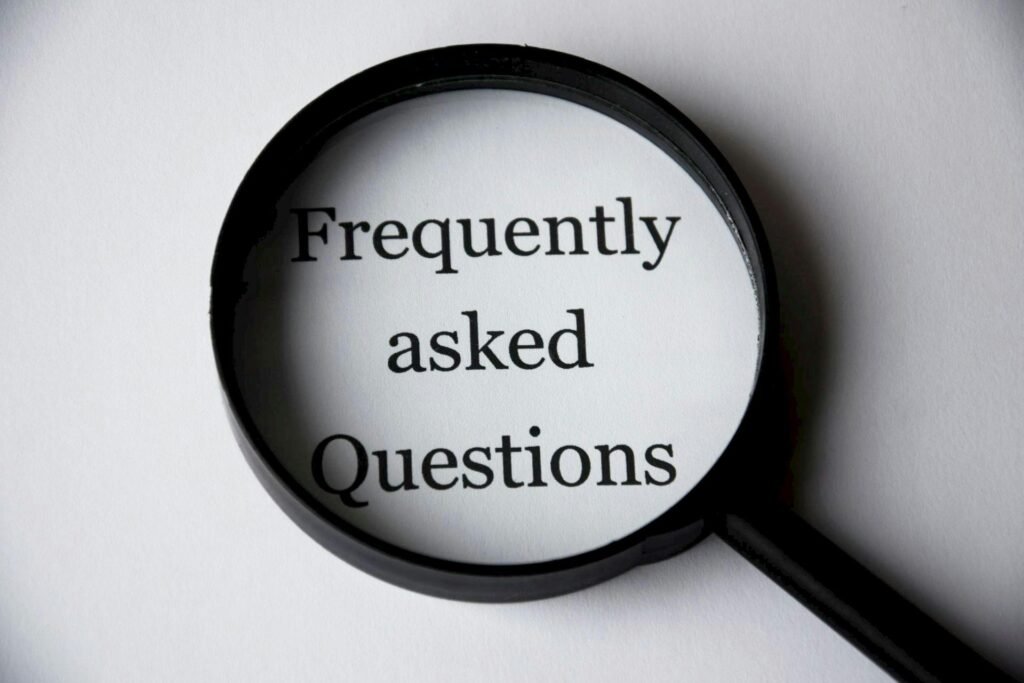Get Familiar With the Top Risks for Food and Drink Companies

The food, agriculture, and beverage industry faces numerous challenges, each of which significantly impacts this sector. Meanwhile, the following 5 risks are among the most important and influential affecting the F&B industry Geopolitical Conflicts Supply chain risks Climate Change Cybersecurity risks Business Interruption There are various solutions to manage the numerous risks that exist. Valid insurance can protect your business from risks and accidents, similar to a protective shield. In the following, we will delve into these risks and explore ways to address them. The Impact of Geopolitical Conflicts Geopolitical conflicts can profoundly impact the food, agribusiness, and beverage industry. These disruptions can lead to supply chain disruptions, price fluctuations, and food insecurity. On the one hand, the Russia-Ukraine War has disrupted global grain exports, particularly wheat, and corn, leading to price increases and food insecurity in many countries, On the other hand, the Israel-Hamas conflict has impacted prices of fertilizer and agricultural production and food distribution, contributing to food insecurity in the region. The Impact of Supply Chain Failure Failure of the supply or distribution chain is one of the industry’s main challenges. After the pandemic and the start of the war in Ukraine, the supply chain in the food industry was challenged more than ever. This proves that unforeseen events such as natural disasters, political unrest, and labor shortages can cause significant disruptions in the supply chain. As a result of this problem, the increase in costs, lack of raw materials, and reduction in production capacity are not far from expected. The high complexity of food supply systems and the existence of multiple stakeholders make it vulnerable to instability. Diversification in supplier bases, creating plans for emergencies, and the existence of flexible production processes can be effective in reducing possible risks. The Impact of Climate Change Climate change poses a significant threat to the food, agribusiness, and beverage industry. Rising temperatures, changing precipitation patterns, and more frequent extreme weather events are disrupting agricultural production and supply chains. Heat stress can reduce crop yields, while droughts can lead to water shortages and land degradation. Additionally, rising sea levels and coastal erosion threaten agricultural land and infrastructure. These changes can result in decreased crop yields, increased production costs, and disruptions in food distribution. Furthermore, climate change can also affect the quality and safety of food products, as extreme weather events can increase the risk of contamination and spoilage. In addition to direct impacts on agricultural production, climate change can also indirectly affect the food industry through changes in consumer preferences and economic conditions. As consumers become more aware of the environmental impacts of food production, there is a growing demand for sustainable and ethically sourced products. Climate change can also lead to increased food prices, which can reduce consumer purchasing power and negatively impact demand for food products. The Impact of Cybersecurity Risks Currently, all industries in the world are facing the potential risk of cyber attacks; The food and beverage industry is no exception. Unauthorized access to data, manipulation of data, and breaches in data security are among the things that happen in cyber attacks. This issue not only causes a lot of financial losses to companies but also causes damage to their reputation and extensive legal consequences. Companies are obliged to constantly assess existing risks and vulnerabilities and deal with the risk of cyber attacks by providing proper training, restricting access, and updating systems. Cybercrime insurance can compensate for a lot of damages caused to companies. The Impact of Business Interruption According to the Global Food and Beverage Risk Outlook 2024 published by WTW, business interruption is the top internal risk for nearly half of food and beverage companies. Business interruption can have a devastating impact on the food, agribusiness, and beverage industry. Disruptions caused by events such as natural disasters, equipment failures, or supply chain disruptions can lead to significant financial losses, damage to reputation, and disruption of operations. In particular, perishable food products face a high risk of spoilage if production or distribution is interrupted. This can result in substantial losses for businesses and contribute to food shortages and price increases in the market. Additionally, disruptions can damage brand reputation and erode consumer trust, making it difficult to recover market share. Natural disasters, equipment failures like machinery breakdowns or malfunctions, supply chain disruptions, cyberattacks, regulatory changes, economic downturns, disease outbreaks, and political instability are just a few examples of the many factors that can cause business interruptions in the food, agribusiness, and beverage industry. To mitigate risks and ensure business continuity, companies in this sector need to have robust risk management plans and contingency strategies in place. Despite the risks and challenges mentioned for the F&B industry, it seems that creating flexibility in this industry is of significant importance. Having insurance covering extreme weather conditions, business interruption, and cyber attacks can help companies and businesses active in this field to be more flexible.
10 reasons to work in the insurance industry

If you still can’t find your favorite field of work, take a look at our top ten list. We give you 10 reasons to seriously consider working in the insurance industry. Even if you’re already working in the insurance industry, knowing these things will motivate you and probably make you even more appreciative of your position. 1. foster a diverse culture Insurance businesses deal with a wide range of people with diverse cultures and occupations. This issue has made diversity necessary in the insurance industry. People with a wide range of language skills and graduates in various fields of finance, business, mathematics, social sciences, or law have a chance to be employed in this industry. This issue is not only useful for the employees of Insurance companies but also makes the insurance industry able to provide more comprehensive solutions to meet the needs of its customers. 2. jobs in various fields The range of jobs available in insurance companies is wide. Just take a look at your interests and capabilities and see which job title is more suitable for you. Risk Manager, Actuary, Underwriter, Human Resource, Marketer, Salesperson, Data Analyst, Insurance Agent, and Insurance Broker are among the job titles in the insurance industry that you can choose. 3. Gain More Skills In addition to the fact that working in other positions can provide you with the right skills to enter the insurance industry, working in the insurance industry can also give you broad skills that will carry you through your career. As a result, even if you want to work temporarily in an insurance company, you will have a good chance to increase your skills. For example, a successful insurance salesman can sell other different products in the future with the experience he has gained. Also, if you are engaged in the financial, technology, and software fields, working in an insurance company can be a useful experience for you. Customer service, active listening, problem-solving, and communication are among the soft skills that you get while working in insurance companies and you can use them in any other business. 4. avoid burnout by work-life balance Creating a work-life balance is very important in modern life. Many insurance companies offer their employees opportunities to balance work and personal life. For example, you may be able to work from home or a combination in some situations. Also, having enough time off allows you to travel more and discover new places and people. 5. Let’s talk about teamwork teamwork is crucial in the insurance industry. On one hand insurance products are often intricate and involve various technicalities. Effective teamwork ensures that different experts within the team can collaborate to understand, develop, and deliver these products to customers. On the other hand, providing excellent customer service is key to retaining clients in the insurance industry. A team that works well together can ensure that customer queries are handled promptly and effectively. So if you are a teamwork lover, the insurance industry is your place. 6. be trained as a new employee In most cases, you don’t need to have a lot of work experience to get hired by an insurance company. Many companies provide short-term training courses for their employees to familiarize themselves with existing procedures and rules. As a result, you will have the opportunity to learn everything you need on the job. After that, by gaining more experience and learning more, better opportunities will be waiting for you. 7. enjoy job security Regardless of the general economic situation, insurance is a necessity for everyone. As a result, this field is more stable compared to others and is less affected by economic crises. Due to new threats such as cyber threats, the insurance industry has become even broader. Working in the insurance industry has relatively good job security that will give you peace of mind. 8. Help others protect themselves With a job in an insurance company, you have the opportunity to help people make a change in their lives and get back on their feet after unfortunate events. Helping others live a healthier life makes you feel useful. You will be able to protect the values of society and will also have a good opportunity to support humanitarian work. 9. Work in an international industry Insurance is an international phenomenon. You can work in international companies and gain experience. This breadth helps you to be more creative and, of course, acquire the right ability to solve various challenges. 10. get start easily Considering the variety of job positions that exist in insurance companies and the many opportunities that these companies provide for internships or training during work, you can enter the job market and progress in a relatively short time.
Key challenges of the insurance industry

The insurance industry is undergoing a period of unprecedented transformation, driven by a confluence of economic, technological, and societal changes. This article explores the key challenges facing insurers and outlines potential strategies to overcome them. Climate Change And Catastrophic Claims Management Catastrophic events like hurricanes, earthquakes, and wildfires pose significant challenges to the insurance industry. These events can lead to massive payouts, straining insurers’ financial resources and operational capabilities. Challenges: Insurers face the risk of insolvency due to large-scale losses. Reinsurance markets can become volatile and expensive. Operational challenges in handling a high volume of claims simultaneously. Overcoming Challenges: Developing advanced risk modeling and catastrophe prediction tools. Implementing effective disaster recovery plans. Diversifying investment portfolios to mitigate risks. Exploring alternative risk transfer mechanisms, such as catastrophe bonds. Attracting and Retaining Customers: The Challenge of Pricing Balancing profitability with customer satisfaction is a delicate act for insurers. A constant challenge is the need to offer competitive pricing while maintaining adequate margins. Challenges: Increasing competition from new entrants and digital insurers. Rising claims costs due to inflation and climate change. Customer expectations for personalized and transparent pricing. Overcoming Challenges: Leveraging data analytics to refine pricing models and identify profitable segments. Offering flexible payment options and discounts. Enhancing customer experience through digital tools and personalized communication. Changing Customer Needs and Expectations The insurance landscape is evolving rapidly, with customers demanding more than just financial protection. They seek personalized experiences, transparency, and digital convenience. Challenges: Meeting the expectations of digitally savvy customers. Adapting to changing customer preferences and behaviors. Balancing customer needs with profitability. Overcoming Challenges: Investing in digital transformation and customer-centric technologies. Offering a seamless omnichannel customer experience. Building strong customer relationships through personalized communication. Breaches and Cyberattacks: Protecting Sensitive Data Due to the extensive volumes of sensitive customer data it manages, the insurance sector stands as a key focal point for cyberattacks. Challenges: Protecting customer data from breaches and unauthorized access. Complying with data privacy regulations like GDPR and CCPA. Managing the financial and reputational consequences of a data breach. Overcoming Challenges: Implementing robust cybersecurity measures, including firewalls, encryption, and employee training. Develop incident response plans to minimize damage in case of a breach. Investing in cybersecurity insurance to mitigate financial losses. The Need for New Skills and Expertise To navigate the complex and dynamic insurance landscape, insurers require new skills and expertise. Challenges: Attracting and retaining talent with the necessary skills. Developing employees’ digital and analytical capabilities. Adapting to emerging technologies and their implications. Overcoming Challenges: Investing in employee training and development programs. Partnering with universities and technology providers to access talent. Fostering a culture of innovation and experimentation. Technologies and Insurtech: Driving Innovation Leveraging technology is essential for insurers to remain competitive. Insurtech, the intersection of insurance and technology, offers new opportunities and challenges. Challenges: Implementing new technologies while managing legacy systems. Protecting against cyber threats associated with digital transformation. Ensuring data privacy and security. Overcoming Challenges: Building a strong technology infrastructure. Fostering a culture of innovation and experimentation. Collaborating with insurtech startups to access new capabilities. Aging Population The aging population and changing demographics present both opportunities and challenges for insurers. Challenges: Meeting the evolving needs of an aging population. Managing the increasing costs of healthcare and long-term care. Attracting and retaining younger customers. Overcoming Challenges: Developing innovative products and services tailored to the needs of older customers. Leveraging data analytics to identify emerging customer segments. Investing in marketing and branding to appeal to younger generations. By addressing these challenges and embracing innovation, the insurance industry can build a sustainable future and continue to serve the evolving needs of its customers. Frequently Asked Questions About the Insurance Industry 1. What are the biggest challenges facing the insurance industry today? The insurance industry faces a multitude of challenges, including catastrophic events, changing customer expectations, cyber threats, and regulatory complexities 2. How is technology changing the insurance industry? Technology is transforming the insurance industry through advancements in data analytics, artificial intelligence, and automation. These innovations are improving underwriting, claims processing, and customer experience. 3. What can insurers do to build trust with customers? Insurers can build trust by prioritizing transparency, offering excellent customer service, and demonstrating a commitment to ethical practices. 4. How can the insurance industry adapt to climate change? The insurance industry can adapt to climate change by developing innovative products, investing in risk management, and partnering with governments and communities to build resilience. 5. What is the future of the insurance industry? The future of the insurance industry lies in embracing digital transformation, focusing on customer experience, and developing innovative solutions to address emerging risks.
Understanding Commercial Auto Insurance

Navigating the complex world of insurance can be overwhelming, especially when it comes to commercial auto insurance. This comprehensive guide will demystify the intricacies of commercial auto insurance, outlining its coverage, exclusions, and factors influencing its cost. What Does Commercial Auto Insurance Cover? Commercial auto insurance is designed to protect businesses from financial losses arising from accidents involving company vehicles. Standard coverage typically includes: Bodily injury liability: Covers medical expenses and other damages caused to others in an accident involving your commercial vehicle. Property damage liability: Protects against costs incurred due to damage caused to another person’s property in an accident. Medical payments coverage: Pays for medical expenses for your employees or passengers injured in an accident, regardless of fault. Uninsured/underinsured motorist coverage: Offers protection if you’re involved in an accident with a driver who lacks or has insufficient insurance. What Does Commercial Auto Insurance Not Cover? While commercial auto insurance provides essential protection, it’s crucial to understand its limitations. Typically, commercial auto insurance does not cover: Cargo: Coverage for goods transported in your vehicle often requires a separate cargo insurance policy. Workers’ compensation: Injuries to your employees while on the job are covered under workers’ compensation insurance, not commercial auto. Personal belongings: Items belonging to you or your employees are generally not covered. What Types of Vehicles Are Covered? Commercial auto insurance covers a wide range of vehicles used for business purposes, including: Trucks: Delivery trucks, box trucks, and commercial vans. Cars: Company cars used for business purposes. Trailers: Trailers attached to commercial vehicles. Commercial motorcycles: Motorcycles used for business activities. Who Needs Commercial Auto Insurance? Businesses that use vehicles for work purposes typically require commercial auto insurance. This includes: Delivery services: Courier companies, food delivery services, etc. Sales representatives: Businesses with employees who use their personal vehicles for work-related activities. Contractors: Businesses that rely on vehicles for job site transportation or equipment hauling. Service providers: Companies that use vehicles to visit client locations, such as plumbers, electricians, and HVAC technicians. What Factors Can Influence the Cost of Your Commercial Auto Insurance? Several factors can influence the cost of commercial auto insurance: Type of vehicle: The type and size of your vehicle will impact your premium. Driver history: Your employees’ driving records can affect your insurance cost. Coverage limits: Higher coverage limits generally result in higher premiums. Deductible: Choosing a higher deductible can lower your premium. Location: Geographic location can influence rates due to factors like accident rates and theft risks. Business size and industry: The size and nature of your business can affect your insurance cost. FAQs 1. What is the difference between commercial and personal auto insurance? Commercial auto insurance covers vehicles used for business purposes, while personal auto insurance covers vehicles used for personal use. The primary difference lies in the types of risks covered and the extent of coverage provided. 2. Who is covered to drive my commercial vehicle? Generally, only employees authorized to drive the vehicle are covered under your commercial auto insurance policy. However, you can often add additional drivers for a fee. 3. Are tools and materials in my vehicle covered under a commercial auto policy? Typically, tools and materials in your vehicle are not covered under a standard commercial auto policy. You may need to purchase additional coverage, such as inland marine insurance, for this type of protection. 4. Can I get commercial auto insurance if I have a bad driving record? While a bad driving record can increase your premium, most insurers offer coverage for drivers with less-than-perfect records. However, you might need to explore options with specialized carriers. 5. How can I lower my commercial auto insurance costs? Several strategies can help lower your commercial auto insurance costs, including: Maintaining a clean driving record for your employees. Installing anti-theft devices in your vehicles. Increasing your deductible. Comparing quotes from multiple insurers. By understanding the intricacies of commercial auto insurance and implementing effective management strategies, you can protect your business from financial losses and ensure smooth operations. Note: This article is based on publicly available information and should not be considered financial advice. It is always advisable to consult a qualified insurance professional, for personalized advice.
How to Build Resilience Against Climate Change

Climate change is no longer a distant threat; it’s a present reality impacting communities and economies worldwide. Building resilience against its effects is crucial for individuals, businesses, and governments alike. This article explores the concept of resilience, its importance, practical examples, and the role of insurance in this journey. What is Resilience? Resilience refers to the ability of a system, community, or individual to adapt and recover from adverse conditions. In the context of climate change, it means being prepared for, responding to, and recovering from climate-related shocks and stresses. Why is building resilience against climate change essential? Climate change is increasing the frequency and intensity of natural disasters such as floods, droughts, wildfires, and storms. These events can cause significant economic losses, disrupt livelihoods, and damage infrastructure. By building resilience, we can minimize the impact of these disasters and accelerate recovery efforts. Examples of Resilience Planning Effective resilience planning involves a multi-faceted approach. Here are some examples: Infrastructure Resilience: Investing in resilient infrastructure, such as flood-resistant buildings, early warning systems, and improved transportation networks, can significantly reduce vulnerability. Community Preparedness: Empowering communities through education, training, and emergency response plans can enhance their ability to cope with climate-related challenges. Ecosystem Restoration: Protecting and restoring natural ecosystems like wetlands and forests can help mitigate the effects of climate change and provide natural buffers against disasters. Steps to Build Climate Resilience Building resilience requires a proactive approach. Here are some key steps: Risk Assessment: Identify potential climate-related threats and vulnerabilities within your community or organization. Develop a Resilience Plan: Create a comprehensive plan outlining actions to be taken before, during, and after a climate-related event. Invest in Prevention and Mitigation: Implement measures to reduce the likelihood and impact of disasters, such as early warning systems, land-use planning, and infrastructure upgrades. Diversify and Adapt: Explore alternative livelihoods, crops, or business models that are more resilient to climate change. Build Social Capital: Foster strong community relationships and networks to support collective resilience. The Role of Insurance in Building Climate Resilience Insurance plays a vital role in building resilience by providing financial protection against climate-related losses. However, as the frequency and severity of climate disasters increase, traditional insurance models face challenges. Innovative insurance products, such as parametric insurance and microinsurance, are emerging to address these challenges. Insurance Innovations for a Changing Climate The insurance industry is responding to the challenges posed by climate change by developing innovative products and services. Parametric insurance, which provides payouts based on predefined weather events, is gaining traction. Additionally, there’s a growing focus on risk management and prevention to mitigate losses. The Role of Government in Building Resilience Government policies and regulations play a crucial role in fostering resilience. Investing in infrastructure, supporting research and development, and implementing land-use planning regulations are essential steps. Additionally, governments can provide financial incentives for individuals and businesses to adopt resilience measures. Building Resilience at the Individual Level Individuals can contribute to building resilience by taking personal actions such as: Home Preparedness: Installing storm shutters, creating emergency kits, and maintaining property insurance. Financial Planning: Budgeting for potential losses and exploring insurance options to protect assets. Community Engagement: Participating in local emergency preparedness initiatives and volunteering for disaster relief efforts. Case Studies in Resilience Examining successful resilience initiatives can provide valuable insights. For example, the city of Rotterdam’s innovative approach to flood management, or the agricultural practices of drought-resistant communities, offer valuable lessons. By understanding the concept of resilience and taking proactive steps, individuals, businesses, and communities can significantly enhance their ability to withstand and recover from the impacts of climate change.
Your Small Business Insurance FAQ: Everything You Need to Know

Owning a small business is an exciting adventure but comes with responsibilities. Protecting your business from unexpected financial losses is crucial, and that’s where business insurance comes in. This comprehensive guide addresses frequently asked questions about small business insurance, empowering you to make informed decisions for your company’s well-being. Demystifying Business Insurance What exactly is business insurance? Think of business insurance as a safety net. It protects your company from financial burdens arising from lawsuits, accidents, property damage, and other unforeseen events. How do I know if I need business insurance? Business insurance isn’t always mandatory by law, but it’s highly recommended for most small businesses. Here are some indicators that you might need coverage: You have a physical location: If you operate from a storefront or office, you’ll likely need property insurance to protect your workspace and equipment. You interact with clients or customers: General liability insurance safeguards your business from claims of bodily injury or property damage to third parties on your premises. You offer professional services: If your business involves providing professional advice or services (e.g., accounting, consulting), professional liability insurance (also known as Errors & Omissions or E&O) protects you from claims of negligence or errors in your work. You have employees: Workers’ compensation insurance is typically mandatory for businesses with employees. It provides coverage for medical expenses and lost wages incurred by employees who experience work-related injuries or illnesses. It’s always best to consult with a qualified insurance broker or agent to assess your specific risks and determine the appropriate insurance coverage for your business needs. Our team of professional Brokers is ready to help you in face-to-face discussion or email communication. What types of coverage are typically included in business insurance? There are various types of business insurance, each addressing different risks. Here are some common types: General Liability Insurance: Covers third-party claims for bodily injury, property damage, and personal injury arising from your business activities. Property Insurance: Protects your business property, equipment, and inventory from damage caused by fire, theft, weather events, and other perils. Business Interruption Insurance: Provides financial compensation for lost income and expenses if your business is forced to close temporarily due to a covered event. Workers’ Compensation Insurance: Mandatory in most jurisdictions, covers medical expenses, lost wages, and rehabilitation costs for employees who suffer work-related injuries or illnesses. Cybersecurity Insurance: Protects your business from financial losses resulting from data breaches, cyberattacks, and other cyber threats. Errors & Omissions Insurance (E&O): Protects your business from claims of negligence or errors in your professional services. Remember, this is not an exhaustive list. The specific coverage options will vary depending on your business type and industry. Cost Considerations and Payment Flexibility How much does business insurance typically cost? Several factors contribute to the cost of business insurance, including: Industry: High-risk industries typically pay higher premiums. Location: Businesses operating in areas with higher crime rates or natural disaster risks might have higher premiums. Size of Your Business: Larger businesses with more employees and greater revenue often pay higher premiums. Your Claims History: Businesses with a history of claims may face higher premiums. The Type and Amount of Coverage: Different types of coverage and higher coverage limits will result in higher premiums. Can I pay my business insurance premium in installments? Yes, most insurance companies allow you to pay your business insurance premium in installments, typically monthly or quarterly. This can help with budgeting and cash flow management. Working from Home and Insurance Needs Do I need business insurance if I work from home? Even if you work from home, you might still need business insurance depending on your activities. For instance, if you meet clients virtually or have valuable equipment at home, coverage might be necessary. Discuss your specific situation with an insurance professional to determine if you need business insurance. Customizing Your Coverage Can I customize my business insurance policy? Absolutely! Business insurance policies are often customizable. You can choose the types of coverage you need, select coverage limits, and potentially add endorsements to address specific risks. Office Space and Insurance When do I specifically need office insurance? If you operate from a physical office space, you’ll likely need property insurance to cover Do I need to get insurance for the building itself, or is that the landlord’s responsibility? This depends on your lease agreement. Typically, the landlord will insure the building structure, but you’ll be responsible for insuring your own contents and any modifications you make to the space. What if I share office space with another business? Discuss insurance needs with your co-tenants. You may be able to obtain a joint policy or secure individual coverage depending on the setup. Starting and running a small business is an exciting journey, but it also comes with inherent challenges and risks. Many unforeseen circumstances can disrupt your operations and jeopardize your financial stability. Business insurance acts as a powerful support system, providing a safety net and peace of mind. By understanding your insurance needs and securing the right coverage, you can navigate challenges with greater confidence and focus on what matters most – growing your business and achieving your entrepreneurial goals. This comprehensive guide has addressed some of the most common questions about small business insurance. We encourage you to explore further and consult with our qualified insurance professionals to create a customized insurance plan that empowers your business to thrive.
Staying Covered: Essential Tips for Managing Your Insurance Policies

Your insurance needs can evolve over time. Whether it’s a new car, a growing family, or a career change, neglecting to maintain your insurance policies can leave you financially exposed. Here’s a guide to effectively managing your insurance and ensuring it remains current with your life. Regular Reviews Are Key Schedule Annual Reviews: Just like your car needs a yearly service, your insurance policies benefit from regular checkups. Set a calendar reminder to review your coverage at least once a year. Assess Your Changing Needs: Consider any life changes that might impact your insurance needs. Did you buy a new home? Have children? Started a business? Your coverage may need to be adjusted in response to these events. Understanding What You’re Covered For Read Your Policy Wording: Don’t just skim the documents! Take the time to understand your policy inclusions, exclusions, deductibles (excesses), and limits. If anything is unclear, contact your insurer for clarification. Review Renewal Documents: Don’t automatically accept renewal offers without reviewing them. Renewals may reflect changes in coverage or premium amounts. Making Informed Adjustments to Your Coverage Shop Around for Better Rates: Loyalty can be rewarding, but it doesn’t hurt to compare quotes from other insurers periodically. You might find a more competitive premium for equivalent coverage. Adjust Coverage Levels: As your assets or income change, your insurance needs may adjust as well. Review your coverage limits and deductibles to ensure they adequately reflect your current situation. Consider Add-Ons: Many insurance policies offer optional add-on coverage for specific needs. Research and consider adding riders like accidental injury cover for your home and contents policy. Keeping Your Information Up-to-Date Inform Your Insurer of Changes: Life throws curveballs. Whether it’s a new address, a change in driving habits, or a home renovation, notify your insurer of any significant changes that might impact your risk profile. Review Your Payment Information: Ensure your payment information is up-to-date to avoid lapses in coverage due to missed payments. For added convenience, you may want to consider establishing automatic payments. Leveraging Technology for Easier Management Online Policy Management: Many insurers offer software and online portals where you can access your policy details, file claims, and update information. Mobile Apps: Some insurers offer mobile apps that allow you to easily manage your policies, make payments, and access important documents on the go. Seeking Professional Advice for Complexities Consult an Insurance Broker: A qualified insurance broker can assess your needs, recommend appropriate coverage options, and negotiate competitive rates on your behalf. If you prefer a personal discussion about your insurance needs, we welcome you to visit our office and meet with one of our Brokers. Alternatively, you can also reach out to us via email at info@sydneyinsurancebrokers.com.au. What Types of Insurance Does Your Organization Need? The specific insurance needs of your organization will vary depending on its size, industry, and activities. However, some common types of insurance most businesses should consider include: General Liability Insurance: Protects your business from financial claims arising from bodily injury, property damage, or personal injury to third parties. Commercial Property Insurance: Covers damage to your business property, equipment, and inventory caused by events like fire, theft, or weather. Business Interruption Insurance: Provides financial compensation for lost income and expenses if your business is forced to close temporarily due to a covered event. Cybersecurity Insurance: Protects your business from financial losses resulting from data breaches, cyberattacks, and other cyber threats. Errors and Omissions Insurance (E&O): Also known as professional liability insurance, this protects your business from claims of negligence or errors in your professional services. Workers’ Compensation Insurance: Mandatory in most jurisdictions, this covers medical expenses, lost wages, and rehabilitation costs for employees who suffer work-related injuries or illnesses. It’s crucial to consult with a qualified insurance broker to conduct a thorough risk assessment and determine the most appropriate insurance coverage for your specific business needs. Challenges and Solutions in Insurance Compliance Maintaining insurance compliance can be a complex task for businesses. Let’s examine a few common challenges and explore potential solutions. Challenges: Keeping Up to Date with Changing Regulations: Insurance regulations can change frequently, making it difficult for businesses to stay informed. Solution: Subscribe to industry newsletters or alerts from regulatory bodies to receive updates on regulation changes. Utilize resources provided by insurance carriers or brokers who can explain how these changes might impact your coverage. Managing Multiple Policies: Many businesses require a variety of insurance policies to address different risks. Managing these policies, renewal dates, and requirements can be overwhelming. Solution: Implement a centralized system for storing and organizing insurance documents. Consider insurance management software or utilize spreadsheets to track policy details, expiry dates, and renewal procedures. Understanding Complex Policy Wording: Insurance policies can be laden with legal jargon and complex terms. Deciphering the exact coverage and exclusions can be challenging. Solution: Don’t hesitate to seek clarification from your insurance broker or agent. Request plain language explanations of key terms and conditions within your policy. Maintaining Accurate Records: Insurance companies may request documentation to verify claims or during audits. Having readily available and accurate records is crucial. Solution: Develop a system for maintaining accurate and up-to-date records related to your insurance coverage. This might include certificates of insurance, risk management plans, and claims documentation. Resource Constraints: Small and medium-sized businesses may not have dedicated staff for managing insurance compliance. Solution: Consider outsourcing insurance compliance tasks to a qualified insurance broker. They can handle policy management, and renewal reminders, and ensure you’re adhering to relevant regulations. By understanding these challenges and implementing appropriate solutions, businesses can streamline their insurance compliance processes and ensure they have the necessary coverage in place.
Addressing Climate Risks in the Insurance Industry: A Rising Tide for Australia

The undeniable reality of climate change poses a significant threat to communities and economies worldwide. Australia, with its vast coastlines and diverse ecosystems, is particularly vulnerable to the impacts of a warming planet. These impacts are not just environmental but also deeply financial, with a growing burden on the insurance industry. How Has Climate Change Affected Australians? Increased Frequency and Intensity of Extreme Weather Events: Australia has witnessed a rise in extreme weather events like heatwaves, droughts, floods, and bushfires. The Bureau of Meteorology reports that the average annual temperature has increased by 1.47°C since 1910, with more frequent heatwaves and extreme rainfall events. These events have caused significant property damage, loss of life, and economic disruption. Rising Sea Levels: Sea levels around Australia are increasing due to melting glaciers and the thermal expansion of oceans. This threatens coastal communities with inundation, erosion, and saltwater intrusion, impacting infrastructure, property, and livelihoods. Changes in Rainfall Patterns: Climate change is altering rainfall patterns, leading to more intense downpours and longer dry periods. This disrupts agricultural production, water security, and ecosystems, with flow-on effects for the broader economy. The Effect on Australian Insurance The increasing frequency and intensity of extreme weather events have resulted in: Surge in Insurance Claims: The Insurance Council of Australia (ICA) reports a rise in weather-related insurance claims in recent years. For instance, in 2019-2020, natural disasters resulted in over $39 billion in insured losses. This puts a strain on insurance companies’ solvency and affordability of premiums. Shifting Risk Profiles: As weather patterns change, previously low-risk areas become more susceptible to disasters. This necessitates recalculating risk profiles for properties and businesses, potentially leading to higher premiums in high-risk zones. Availability Challenges: In some high-risk areas, insurance companies may become hesitant to offer coverage or may significantly increase premiums, making it difficult for some Australians to obtain essential insurance. The Risks We Should Expect Looking ahead, climate change is expected to further exacerbate existing risks and introduce new ones: More Frequent and Severe Natural Disasters: The Intergovernmental Panel on Climate Change (IPCC) predicts an increase in the intensity and frequency of extreme weather events due to global warming. This translates to a higher likelihood of costly insurance claims. Infrastructure Damage: Climate change will likely lead to more frequent and severe damage to infrastructure like roads, bridges, and power grids. This can disrupt supply chains, businesses, and communities, causing significant economic losses. Changes in Public Health Risks: Climate change may lead to an increase in heat-related illnesses, vector-borne diseases, and mental health issues. These could impact health insurance costs and strain healthcare systems. Should There Be New Insurance Models? The traditional insurance model based on historical data may not be sufficient to address the evolving risks posed by climate change. Some potential solutions include: Parametric Insurance: This model triggers payouts based on pre-defined parameters associated with a disaster (e.g., wind speed in a cyclone) rather than relying on damage assessments, offering faster financial relief. Resilience-Based Insurance: This model incentivizes risk mitigation measures like strengthening buildings or installing flood defenses. By reducing the risk of damage, it can potentially lower premiums. Public-Private Partnerships: Collaboration between governments and insurance companies can help develop risk-sharing mechanisms and ensure broader community access to affordable insurance in high-risk areas. The insurance industry needs to adapt and innovate to address the challenges posed by climate change. By exploring new models and working collaboratively with governments and communities, the industry can play a crucial role in building resilience and managing climate risks in Australia. Climate Change and Insurance Coverage in Australia While the insurance landscape is adapting to climate change, it’s important to note that standard home and contents insurance may not cover all climate-related events. Here’s a brief overview of some relevant coverages: Flood Insurance: This is a separate policy typically offered as an add-on to home and contents insurance. It protects against damage caused by floodwaters entering your property. Storm Damage: Standard home and contents insurance typically covers damage caused by wind, hail, or rain during storms. However, it’s crucial to check the specific policy wording and exclusions. Bushfire Damage: Similarly, most home and contents insurance policies cover damage caused by bushfires. Again, carefully review your policy wording to understand the extent of coverage. For comprehensive protection against climate-related events, talking to a qualified insurance broker is essential. They can assess your specific risks and recommend the most suitable insurance products to safeguard your property and business. Note: This article is based on publicly available information and should not be considered financial advice. It is always advisable to consult a qualified insurance professional, for personalized advice.
Demystifying Risk: The Cornerstone of Insurance

Understanding risk is fundamental to navigating the world of insurance. As insurance specialists, we deal with the potential for financial loss every day. But what exactly does “risk” mean in the context of insurance? Harvard University defines risk in three ways: Any chance of loss: This is the core concept. An insurance policy protects you against the possibility of a financial setback due to unforeseen events. Uncertainty: The likelihood and severity of a loss are uncertain. Insurance helps manage this uncertainty by providing a financial safety net. The insured or the property/object: In insurance, “risk” can also refer to the person or thing being insured (e.g., your car in a car insurance policy). Beyond the dictionary definition, here’s what “risk” means in insurance: Measurable chance of loss: Insurance companies evaluate the likelihood of a covered event (e.g., car accident, fire) occurring and the potential cost associated with it. Pool of insured risks: By spreading the risk across a large pool of policyholders, insurance companies can manage the financial burden of individual losses. Basis for premiums: The perceived risk of an event (e.g., your driving history for car insurance) affects the cost of your insurance premium. The Many Forms of Risk Insurance policies address a wide range of risks, categorized broadly as: Property risks: Loss or damage to your car, home, or other belongings due to events like fire, theft, or weather. Liability risks: Financial responsibility for injuries or damage you cause to others (e.g., car accident, public liability). Financial risks: Loss of income due to illness, disability, or death. Income protection and life insurance address these risks. Risk terms in insurance that you should know By understanding risk and its various forms, you can make informed decisions when choosing insurance coverage. An insurance specialist can help you assess your risk profile and find the right policy to protect yourself financially in the face of the unexpected. Basic Risk These are common, predictable events with a high probability of occurring, like windscreen damage or minor medical expenses. Basic risks are often factored into general insurance premiums. Standard Risk These are events considered insurable, with a measurable probability of occurring. Examples include car accidents, home fires, and medical emergencies. Standard risks form the basis of most insurance policies, with premiums reflecting the assessed risk profile. Catastrophic Risks These are low-probability, high-severity events like major natural disasters. Some government intervention or specialized insurance markets might be needed to manage these risks. Not all risks can be insured. Here’s why Unpredictable events: Events with an extremely low probability or those impossible to predict (e.g., alien invasion) generally can’t be insured. Moral hazard: If insuring a risk encourages risky behavior (e.g., insuring a car with a history of reckless driving), the insurance becomes unviable. Basis risk: If the cost of insuring a risk becomes too high due to a limited pool of insureds, the insurance becomes impractical. Choosing the Right Risk Insurance Policy: Key Factors Identify your risk profile: Consider your lifestyle, assets, and potential vulnerabilities to determine the risks you need to insure against. Compare policies and coverage: Research different insurance providers and compare their offerings to find a policy that meets your specific needs and budget. Understand exclusions: Be aware of what events or situations are not covered under your policy. Excess (deductible): The excess is the amount you pay upfront before your insurance coverage kicks in. Choosing a higher excess can lower your premium but requires you to shoulder a larger portion of the cost in case of a claim. What is Risk Analysis in Insurance? Risk analysis is the cornerstone of insurance underwriting. It’s the process by which insurance companies assess the probability and severity of potential losses associated with insuring an individual or item. This analysis is crucial for determining: Insurability: Whether a particular risk is suitable for insurance coverage. Premium pricing: The cost of your insurance policy is directly linked to the assessed risk profile. A thorough risk analysis ensures premiums are fair and reflect the likelihood of a claim. Policy terms and conditions: Risk analysis can influence the specific terms and conditions of your policy, such as exclusions or excess amounts. Risk analysis in insurance typically involves: Data collection: This includes information about the person or property being insured, their history (e.g., driving record, claims history), and any relevant statistics. Statistical analysis: Insurance companies leverage historical data and actuarial science to estimate the likelihood of insured events. Risk mitigation strategies: In some cases, insurers might recommend risk mitigation strategies (e.g., home security systems) to improve your risk profile and potentially lower In conclusion, risk is the foundation of insurance. By understanding how insurance companies analyze and manage risk, you can make informed decisions about the type and amount of coverage you need. Don’t hesitate to seek professional advice to ensure you have the right insurance plan in place to protect yourself financially. Remember: This article provides general information only. Consult a qualified insurance broker to obtain advice tailored to your specific circumstances.
Peace of Mind on the Road: Understanding CTP Insurance in Australia

Hitting the road in Australia requires more than just a license and registration. It’s mandatory to have Compulsory Third Party (CTP) insurance, also known as a Green Slip in New South Wales. This essential insurance acts as a safety net, ensuring those injured in a car accident receive financial support, regardless of who caused the accident. What is CTP Insurance? CTP insurance provides compensation for medical expenses, lost income, and other benefits to people injured in a motor vehicle accident. This includes: Individuals operating or riding in other vehicles involved in the accident Passengers in your vehicle Pedestrians, cyclists, and motorcyclists injured by your vehicle Think of CTP insurance as a legal requirement that protects everyone on the road, ensuring those injured in an accident have access to financial assistance. What’s Covered Under CTP Insurance? CTP insurance typically covers a range of expenses for accident victims, including: Medical and treatment costs: This covers hospital stays, surgery, rehabilitation, medication, and other treatments related to your injuries. Loss of income: If you’re unable to work due to your injuries, CTP insurance may compensate for lost income. Permanent disability benefits: In case of permanent disabilities, CTP insurance may provide ongoing financial support. Funeral expenses: In the tragic event of a fatality, CTP insurance may contribute towards funeral costs. What is Not Covered? While CTP insurance is vital, it’s important to understand its limitations: Damage to vehicles: CTP insurance doesn’t cover repairs to your vehicle or damage to other vehicles involved in the accident. Personal injury to yourself (the at-fault driver): If you’re the driver who caused the accident and sustained injuries, CTP insurance wouldn’t cover your medical expenses or lost income. Property damage: CTP insurance doesn’t cover damage to property, such as fences, buildings, or other objects impacted by the accident. Theft: CTP insurance doesn’t cover the theft of your vehicle. How Does CTP Work in Australia State by State? CTP schemes are administered by each state and territory in Australia. Here’s a brief overview: New South Wales (NSW): CTP insurance is known as a Green Slip and is overseen by the State Insurance Regulatory Authority (SIRA). Victoria: The Transport Accident Commission (TAC) manages CTP insurance in Victoria. Queensland: CTP insurance is administered by the Motor Accident Insurance Commission (MAIC) in Queensland. South Australia, Western Australia, Tasmania, Northern Territory, and Australian Capital Territory (ACT): Each of these jurisdictions has its own CTP scheme and regulatory body. It’s important to check with the specific CTP authority in your state or territory for detailed information on coverage, costs, and claims processes. What Documents You May Need to Buy CTP Insurance Obtaining CTP insurance (Green Slip in NSW) is a relatively straightforward process. Here are some documents you generally need to have on hand: Vehicle Registration: Your vehicle registration document is essential for CTP insurers to identify the vehicle you’re insuring. Driver’s License: A copy of your driver’s license is required to verify your identity and driving qualifications. Proof of Ownership (if applicable): If you’re not the registered owner of the vehicle (e.g., leasing a car), you might need to provide a document proving your permission to insure the vehicle. In some cases, you may also be required to provide: Demerit Point History: Your CTP insurer might request information on your demerit points, which can affect your premium costs. Previous CTP Insurance Details (if applicable): If you’re switching CTP providers, having details from your previous policy can expedite the process. CTP Claims Process Explained: What to Do After an Accident If you’re unfortunately involved in a car accident and need to make a CTP claim, here’s a general overview of the process: Seek Medical Attention: Your health and safety are the top priority. Ensure you receive any necessary medical treatment and obtain documentation of your injuries. Report the Accident: Contact the police to report the accident and obtain a police report. This report will be crucial for your CTP claim. Lodge Your CTP Claim: Contact your CTP insurer or the relevant CTP authority in your state to lodge your claim. They will give you a claim and you will be guided through the process by them. Gather Evidence: Collect any evidence that supports your claim, such as witness statements, photos of the accident scene, and damage to vehicles. Keep Records: Maintain copies of all medical bills, receipts, and communication with your CTP insurer. Frequently Asked Questions (FAQs): Is it illegal to not have car insurance in Australia? Yes, driving an unregistered vehicle without CTP insurance is illegal in all Australian states and territories. Significant penalties and fines apply for driving without a valid CTP Green Slip. Which vehicles need CTP insurance? All registered vehicles in Australia, including cars, motorcycles, trucks, buses, and trailers, require CTP insurance. Does CTP cover the cost of damaged vehicles or property? No, CTP insurance doesn’t cover repairs to your vehicle or damage to other vehicles or property involved in the accident. For this type of coverage, consider comprehensive car insurance. Does CTP cover theft? No, CTP insurance focuses on compensating those injured in an accident. Theft of your vehicle wouldn’t be covered under CTP insurance. Does CTP insurance transfer with registration? Yes, CTP insurance is linked to the vehicle, not the owner. When you sell your car, the CTP insurance automatically transfers to the new owner. The responsibility to maintain CTP coverage falls on the vehicle’s registered owner. Please note: This article is a general guide and doesn’t constitute specific financial advice. For detailed information on CTP insurance costs, coverage options, and claims processes in your state, we recommend contacting our experienced consultants at Sydney Insurance Brokers. We can help you understand your CTP requirements and ensure you have the right
